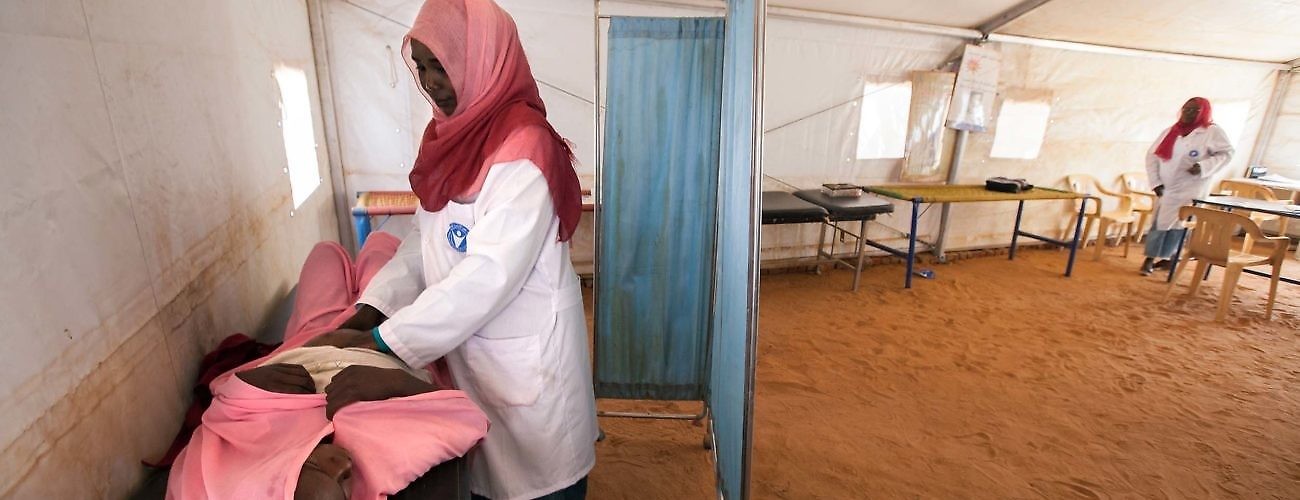Medical personnel from the Sudanese NGO Humanitarian Assistance and Development work at a new tent sponsored by the UNAMID humanitarian division with the support of the World Health Organization (WHO) in Zam Zam IDP camp, North Darfur, July 9, 2013. Albert González Farran/UNAMID.
Following decades of war, economic decline, and underinvestment, Sudan’s healthcare system entered a new phase of crisis in 2019 as peaceful protests led to the ouster of President Omar al-Bashir. Among those leading these protests were doctors and other medical personnel fed up with poor working conditions and medicine shortages. This speaks to the degraded state of healthcare in the country, particularly in the conflict-affected regions of Darfur, South Kordofan, and Blue Nile.
This paper looks at the humanitarian response to health-related needs in these conflict-affected parts of Sudan. After providing an overview of the state of Sudan’s healthcare system, it explores the main trends and challenges in the humanitarian health response, including the difficult partnerships between international and Sudanese health actors, restricted humanitarian access, and the effort to shift toward more sustainable approaches.
It concludes that the humanitarian health response in Sudan is stuck: most agree on the need to move beyond short-term approaches, but the national capacity and development funding needed to make this transition are missing. At the same time, with newly accessible areas exposing unmet needs and conflict and displacement ongoing, a robust humanitarian response is still desperately needed. This situation calls for the UN, donors, and health NGOs to continue their efforts to respond to needs while strengthening the healthcare system, to coordinate humanitarian and development funding, and to advocate for maintaining and extending humanitarian access.








